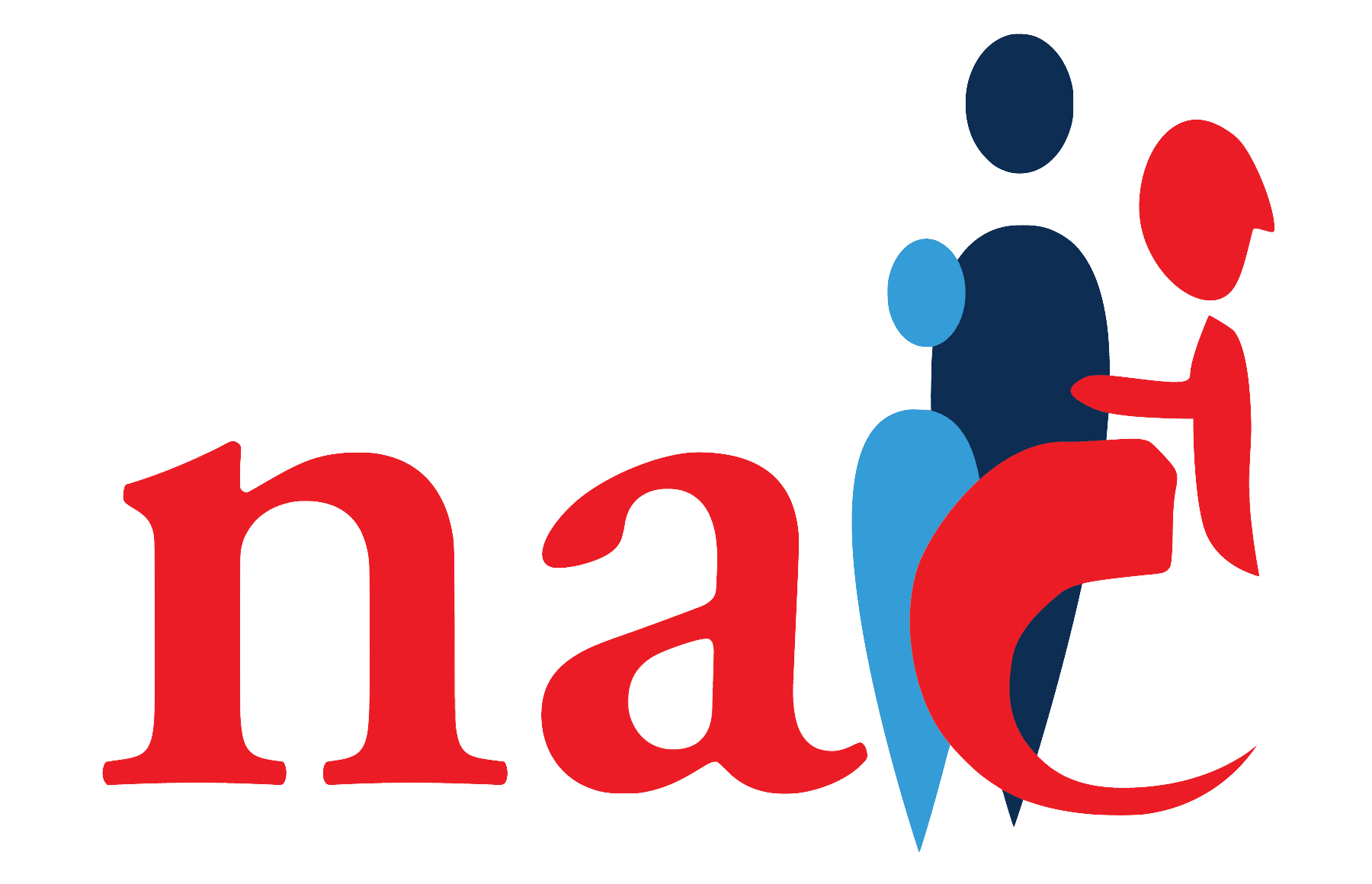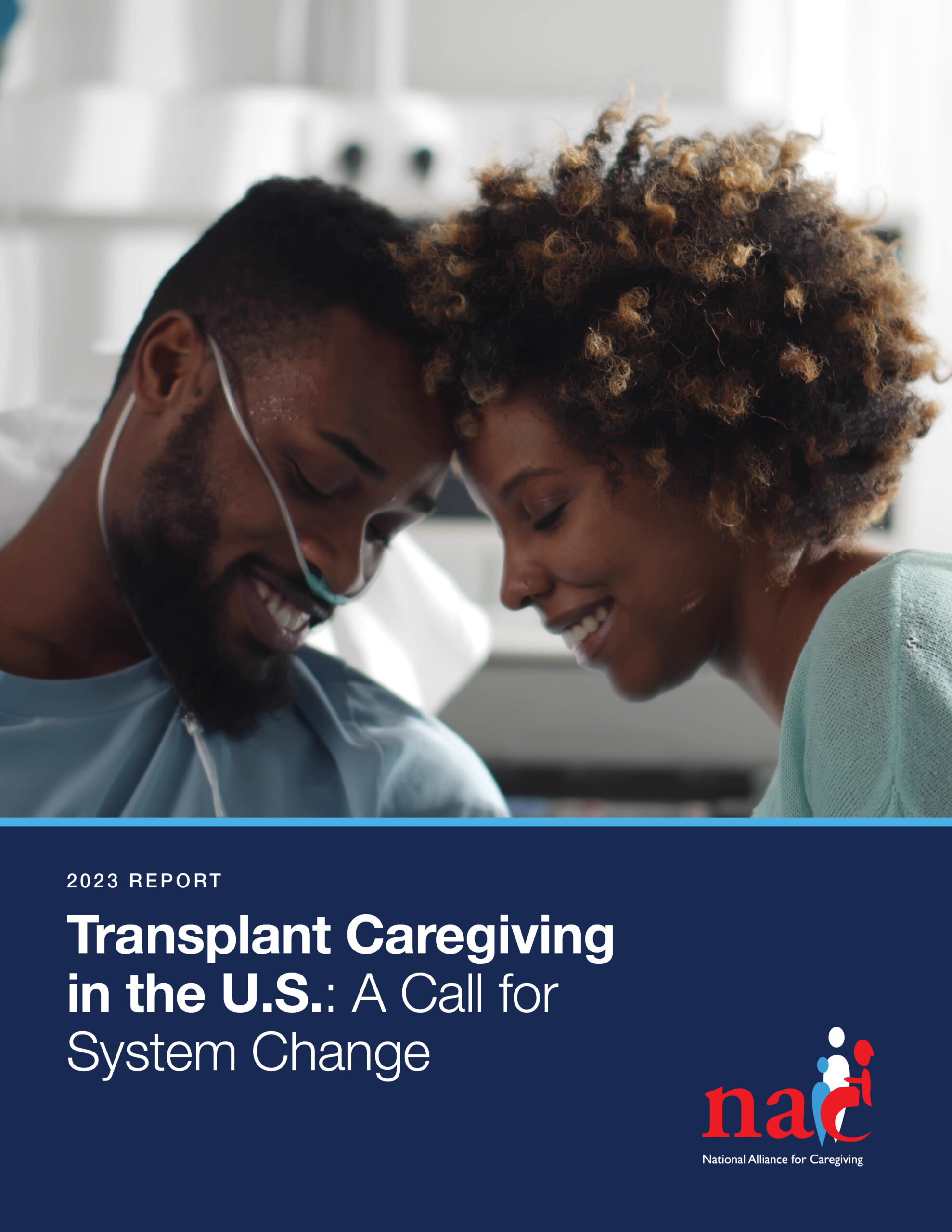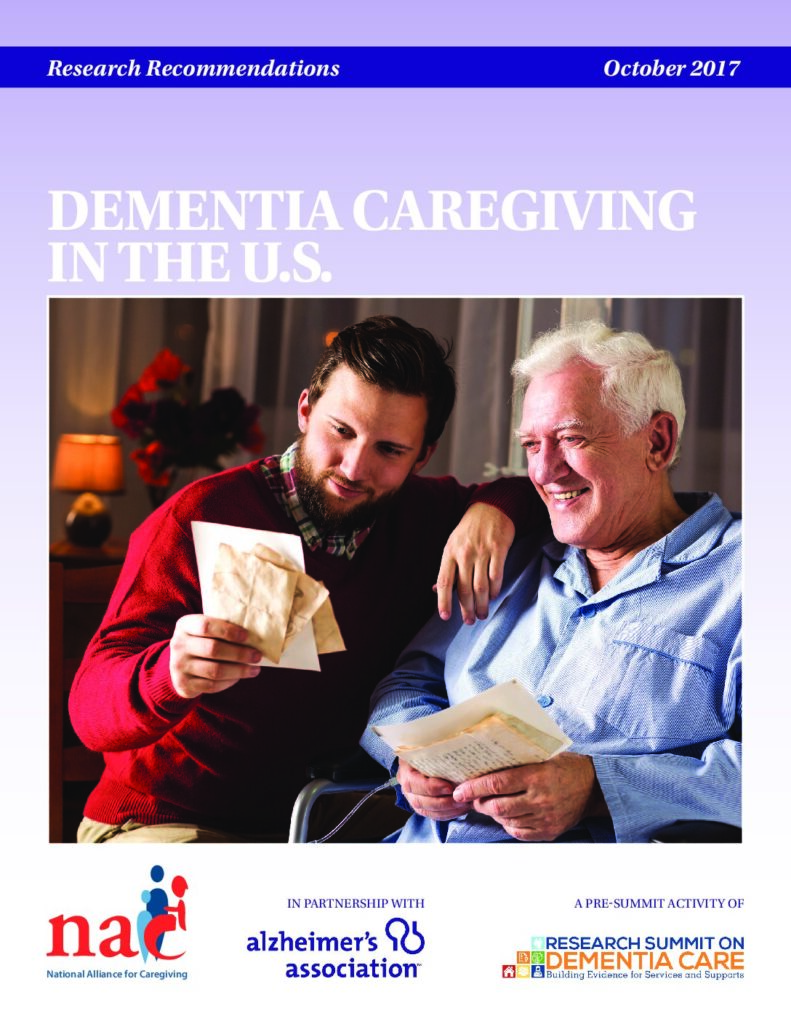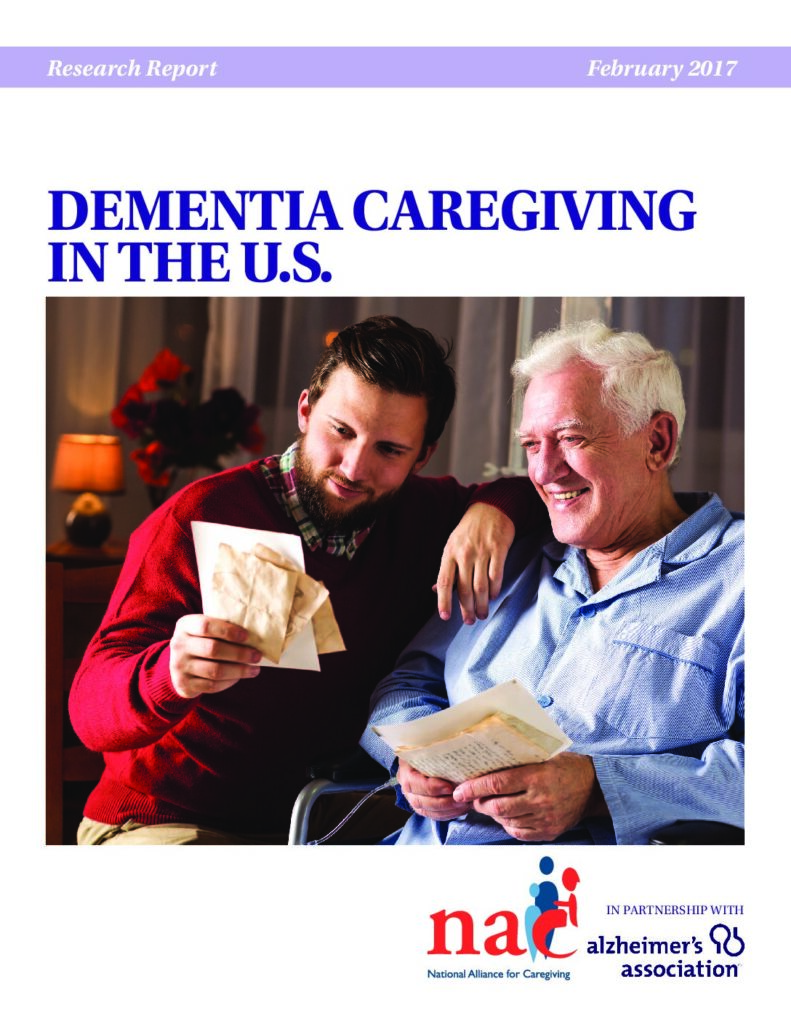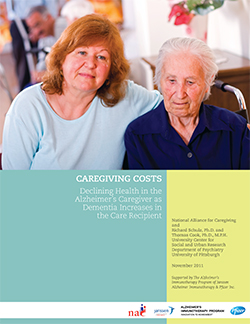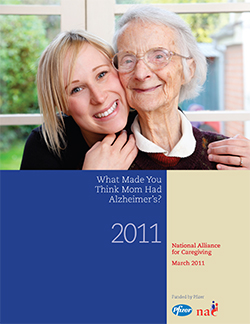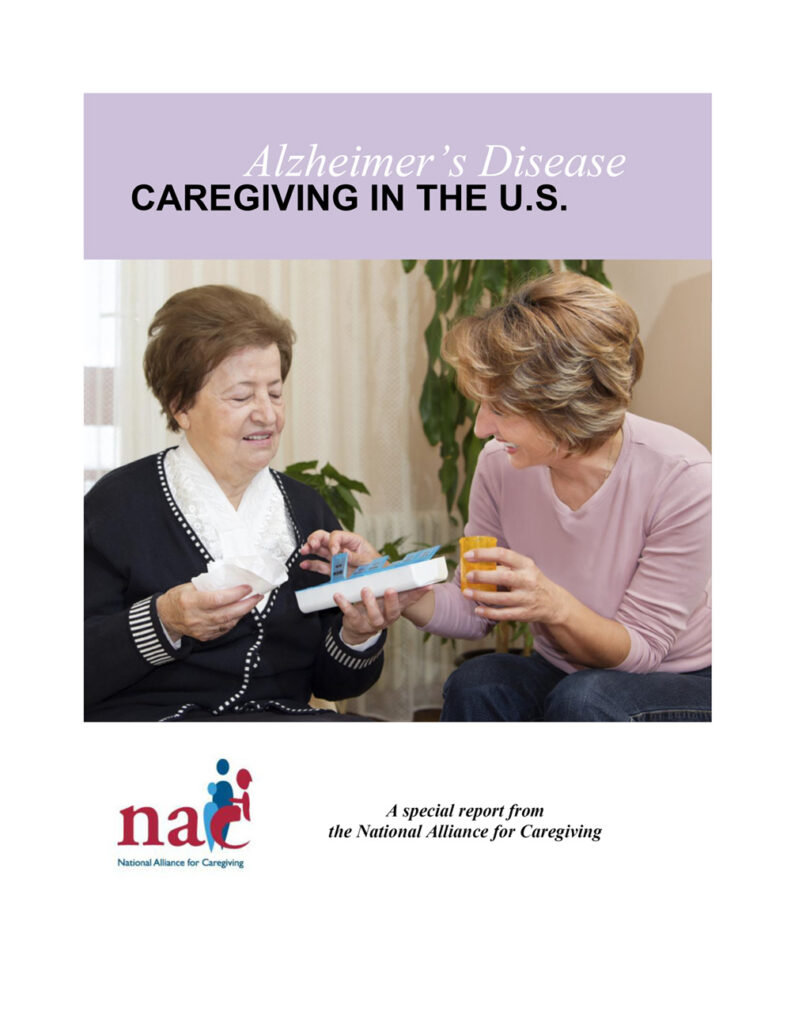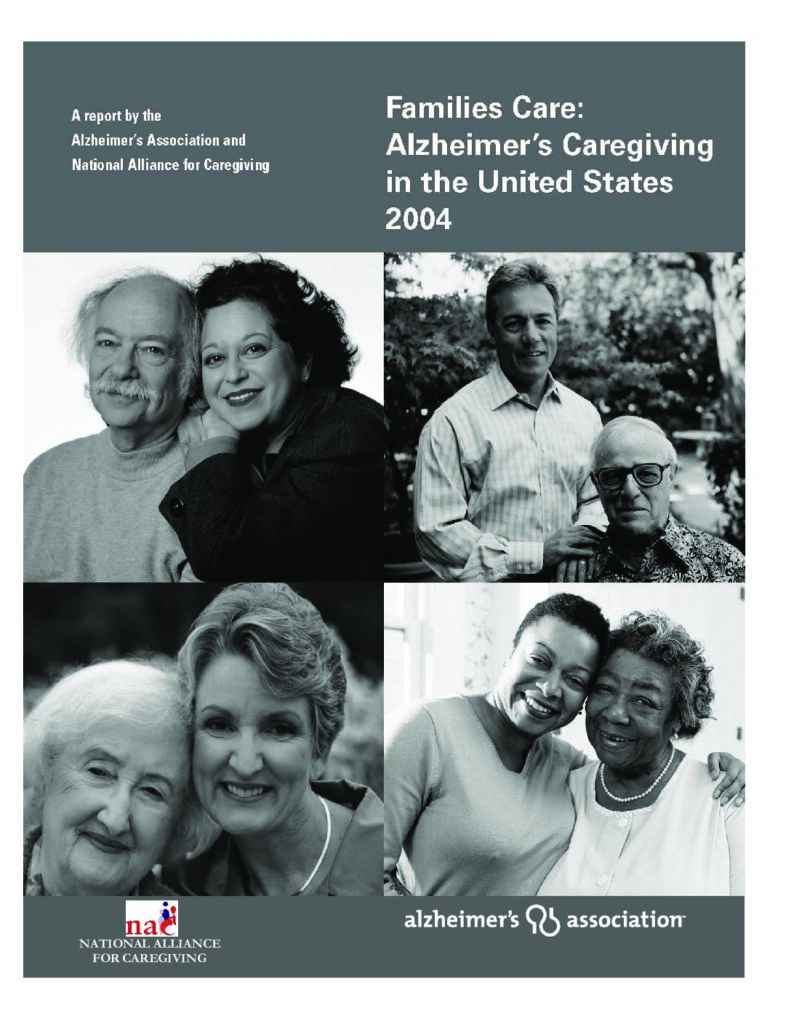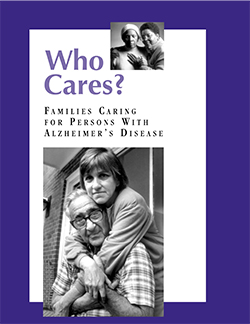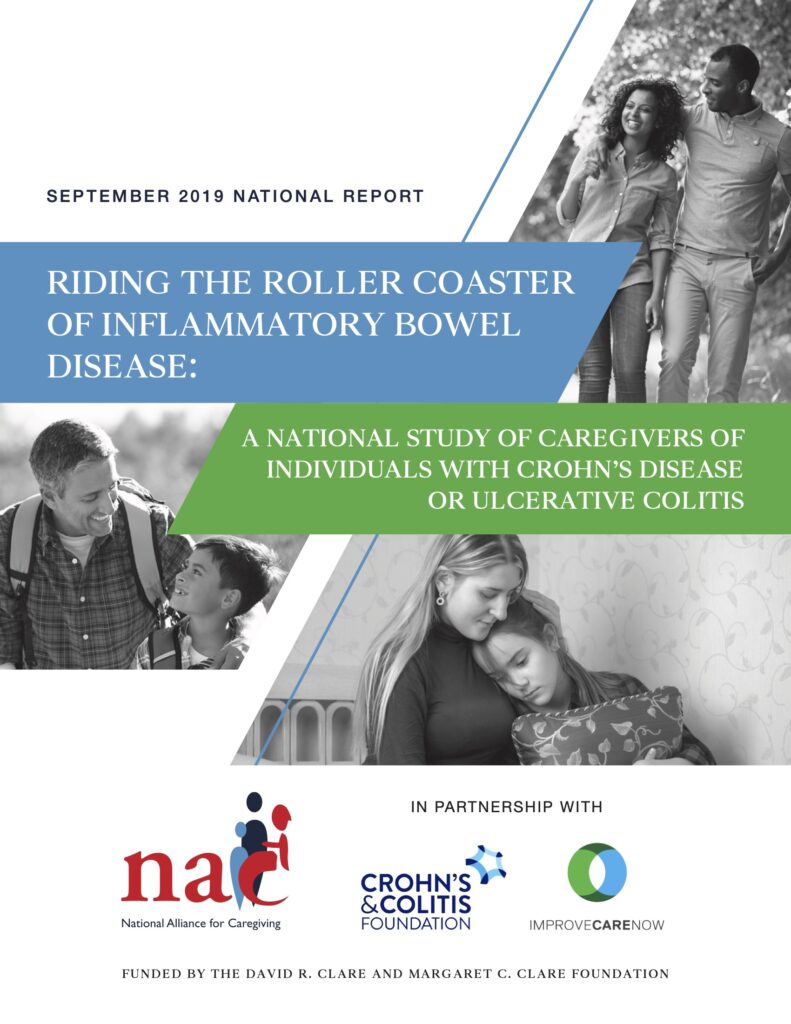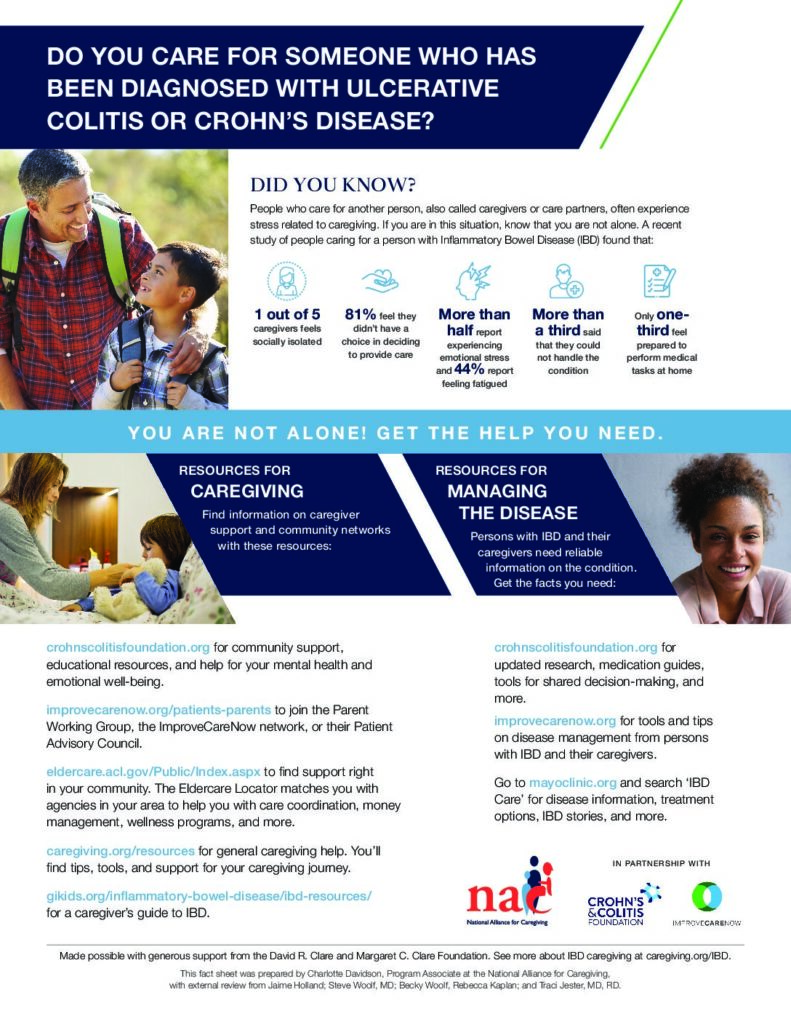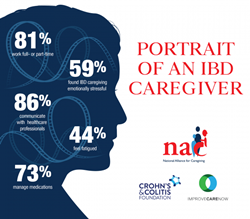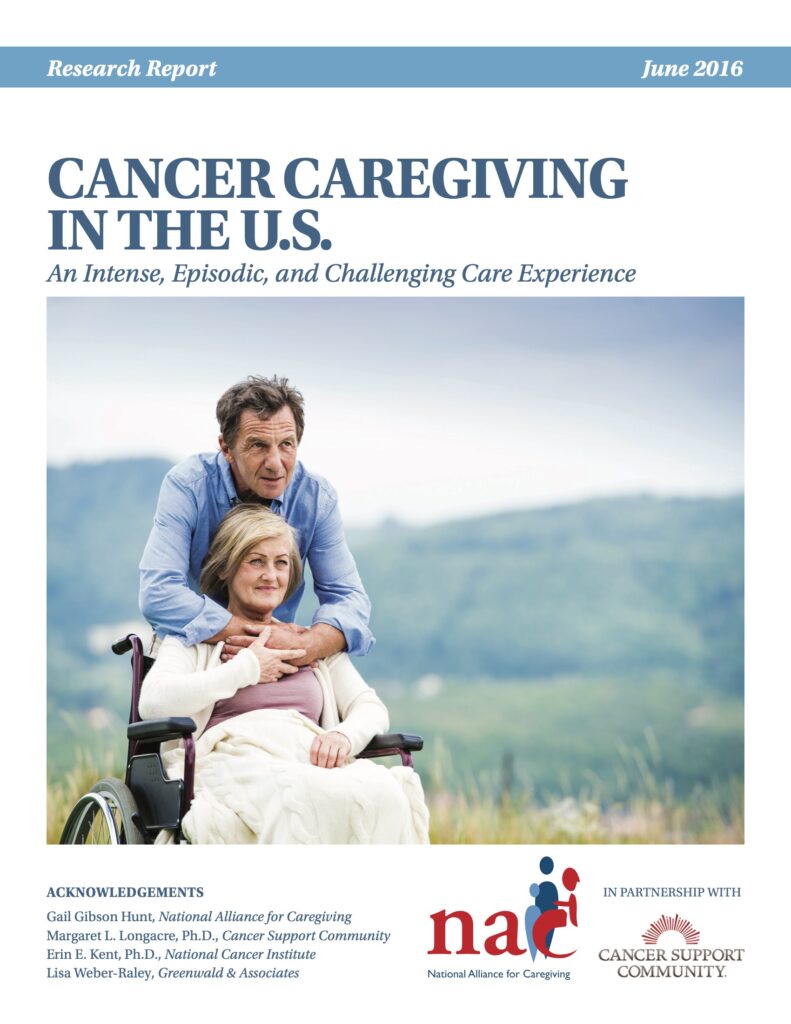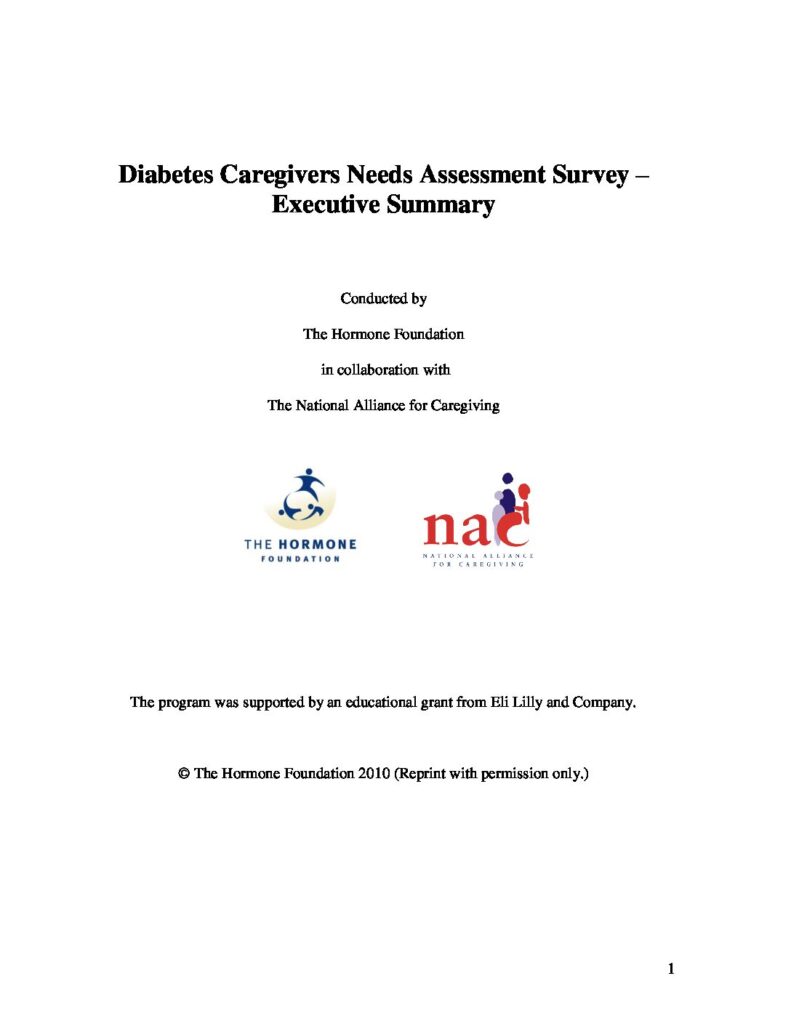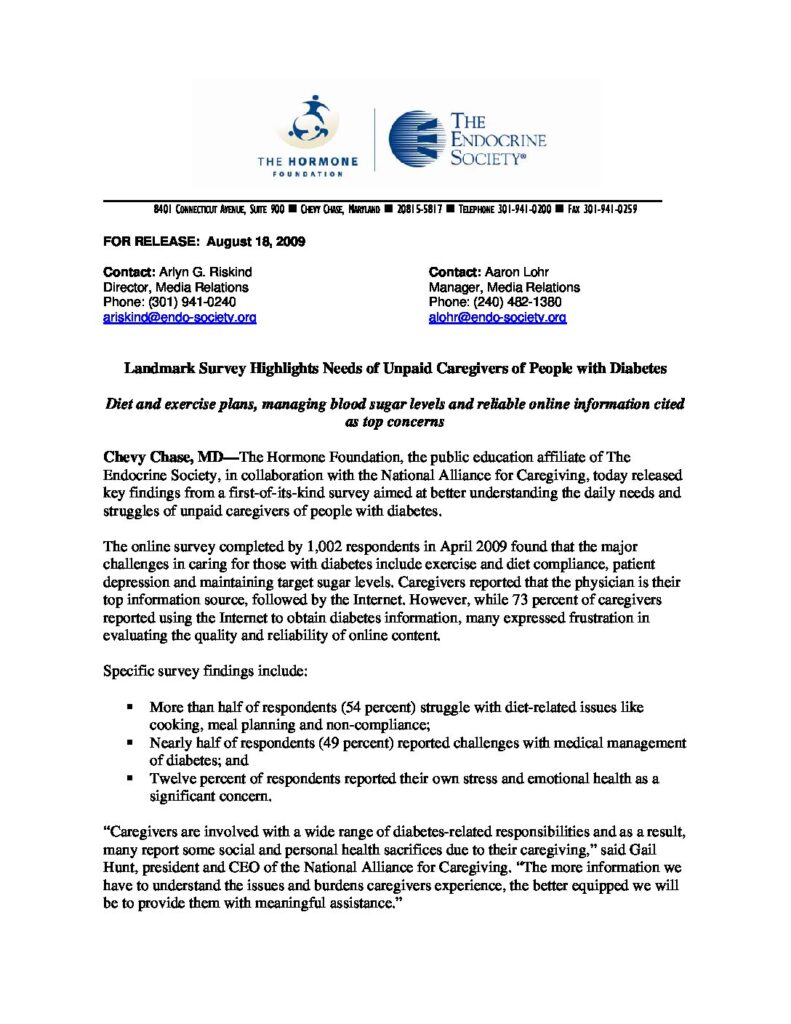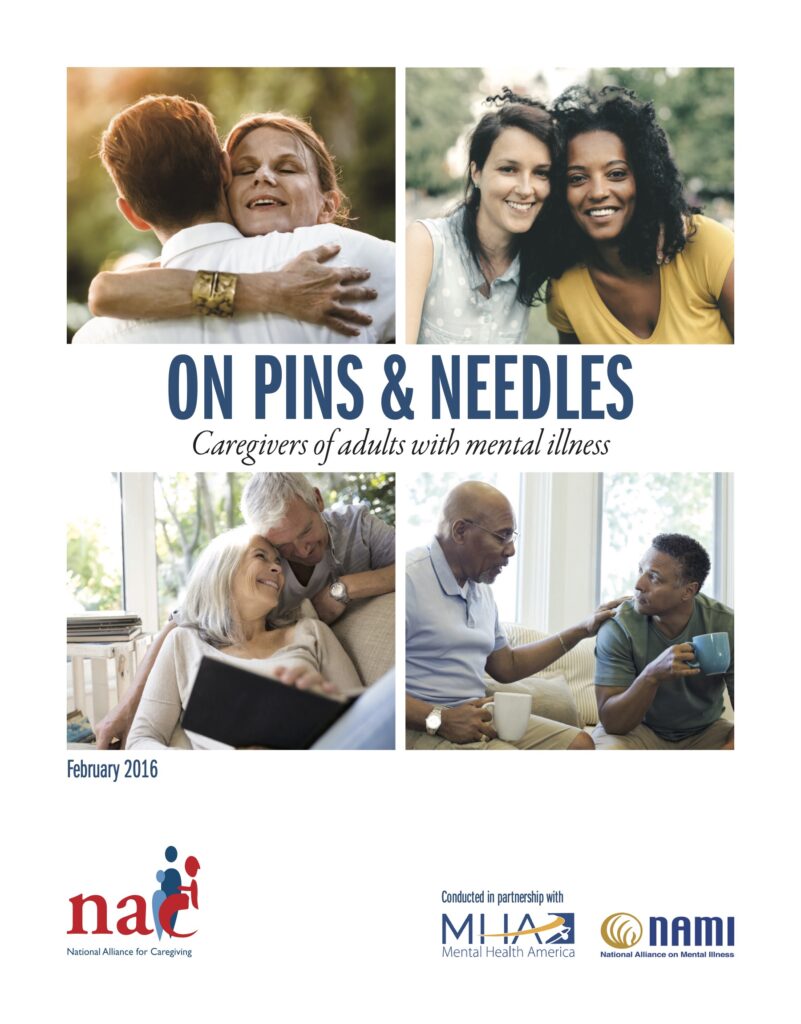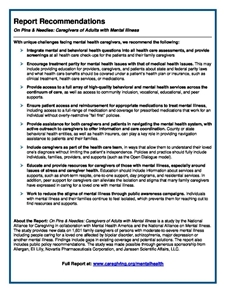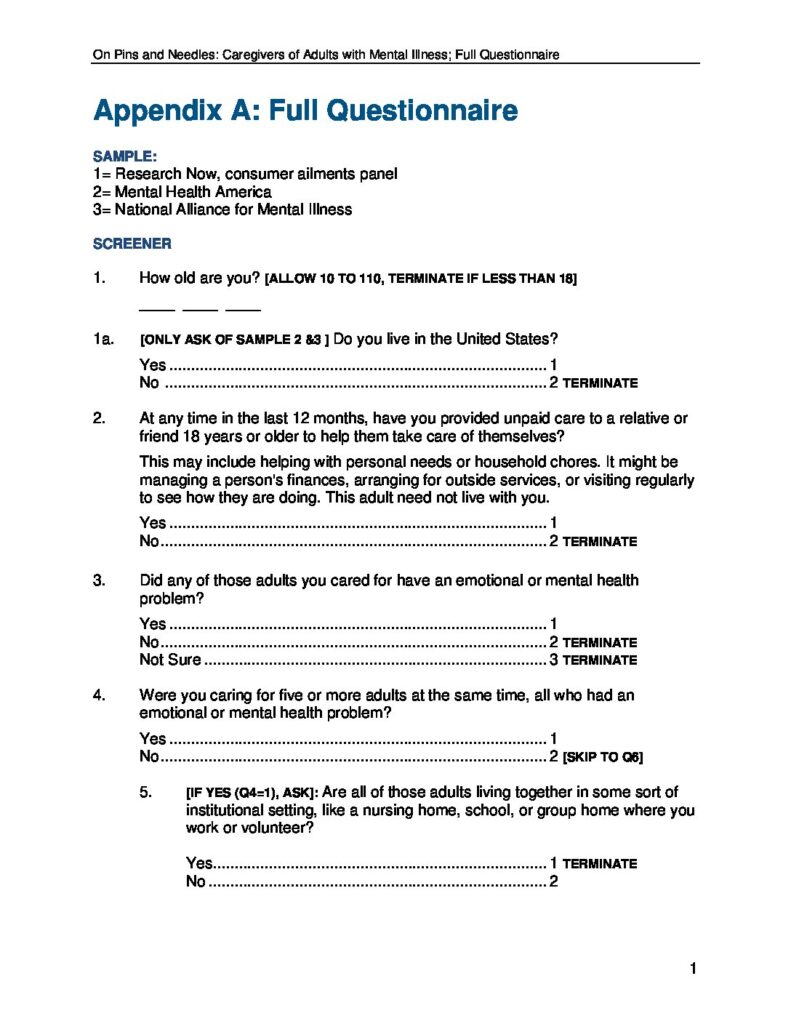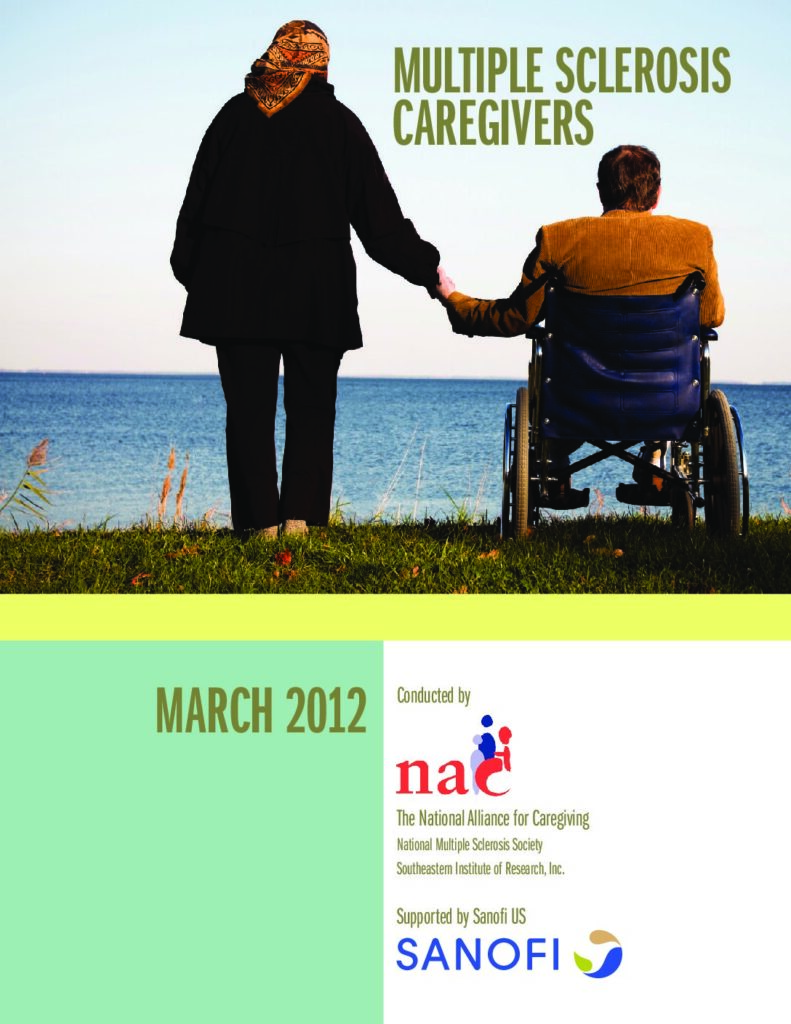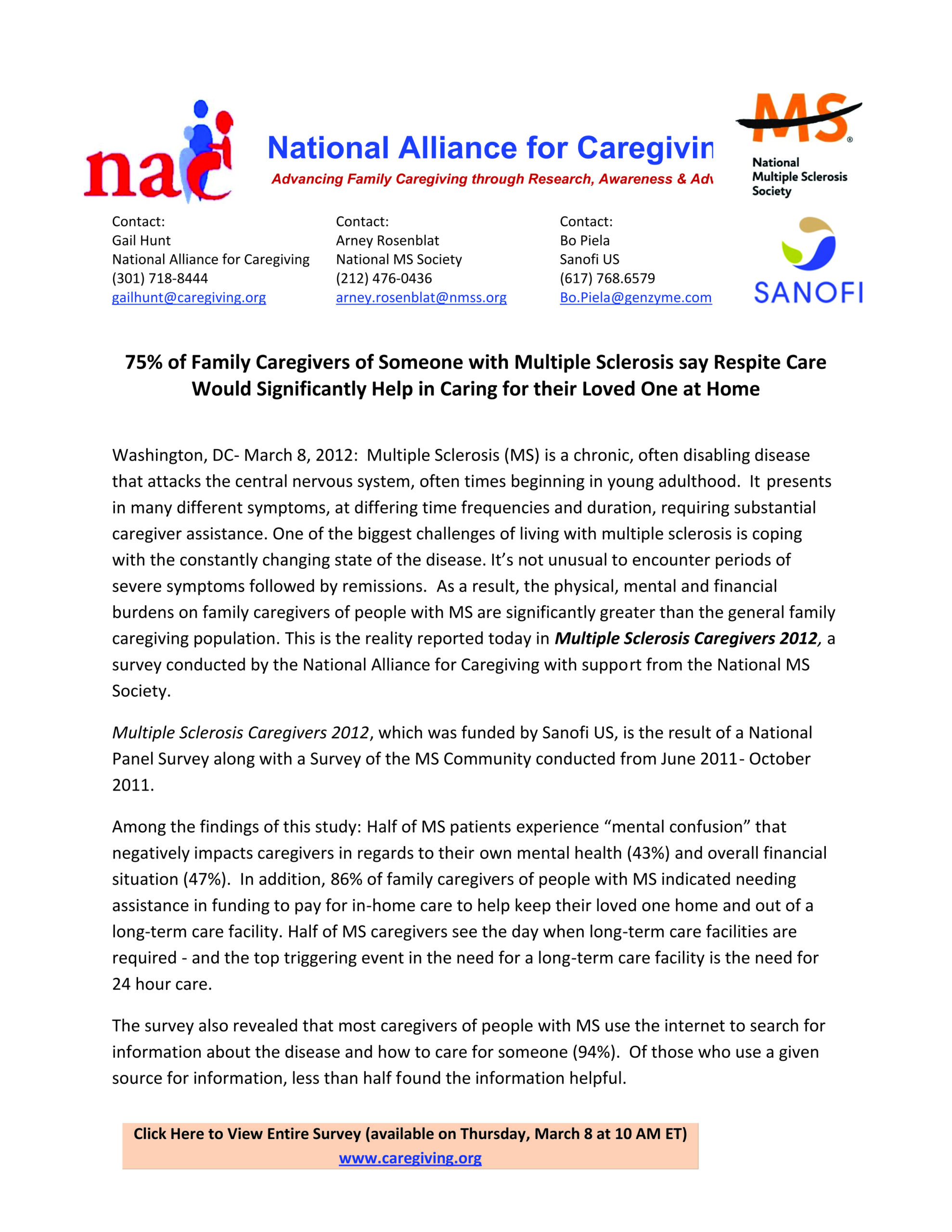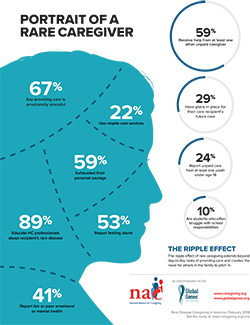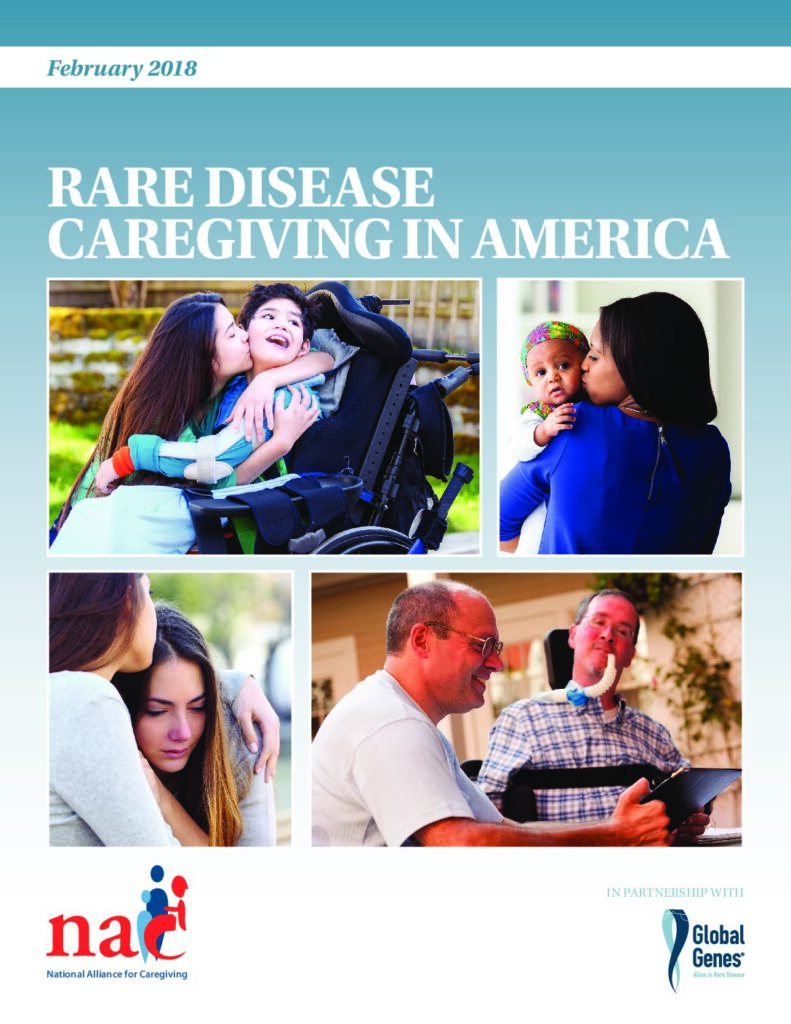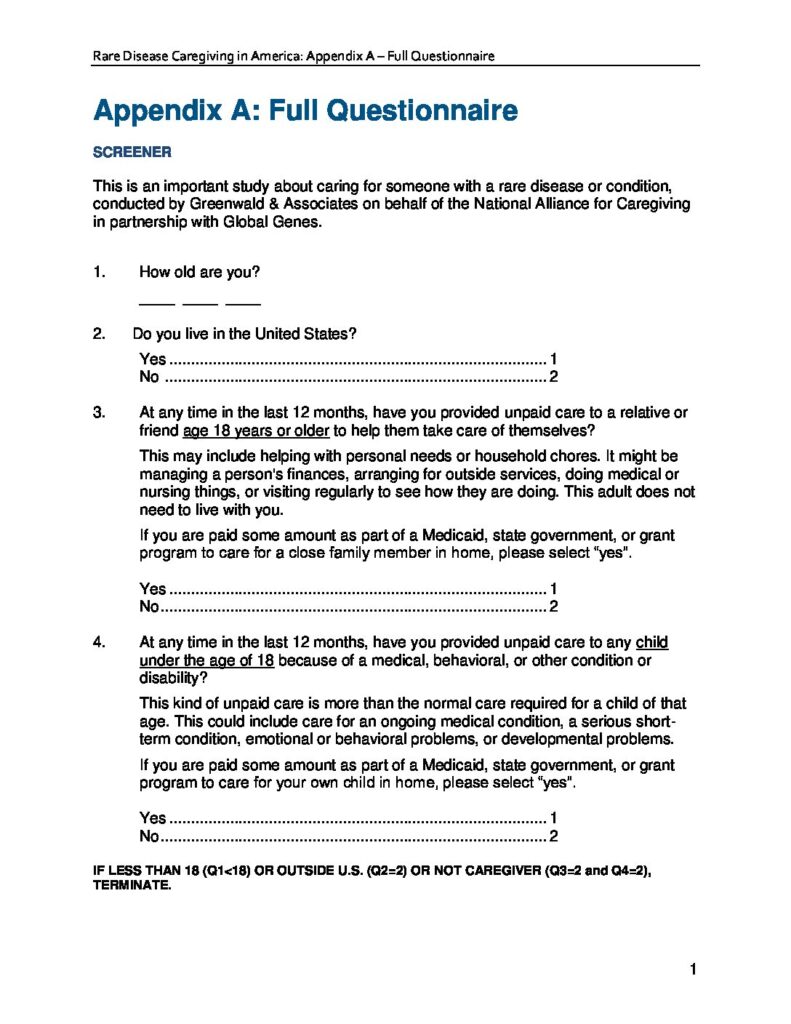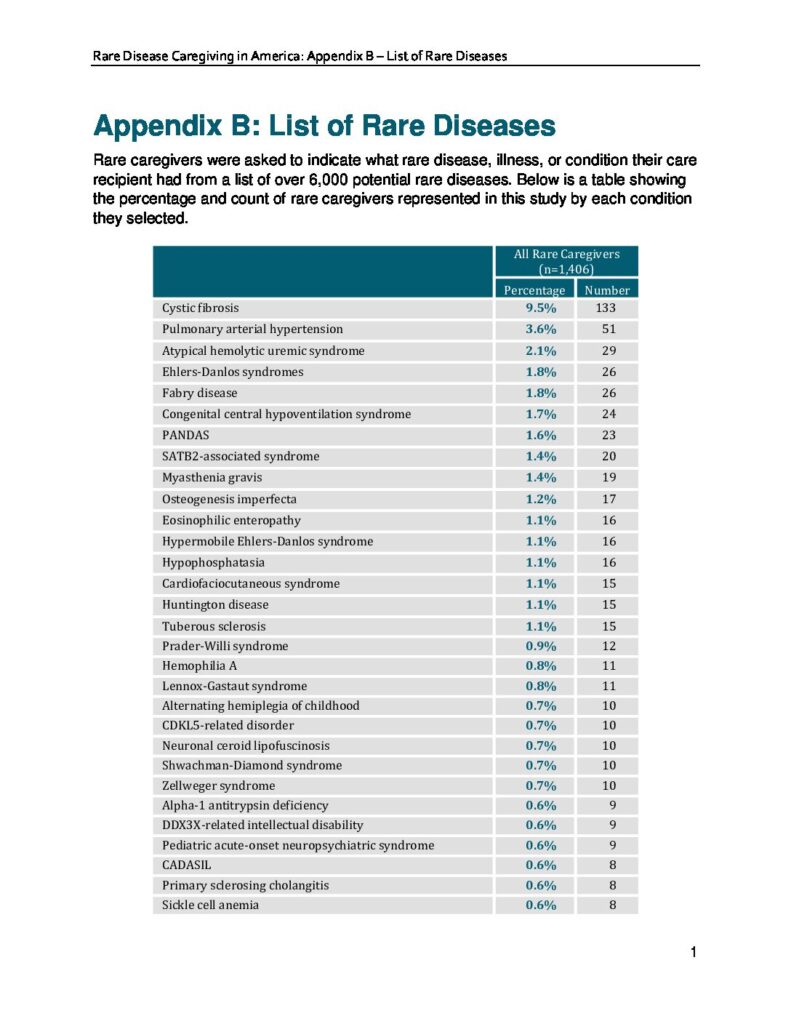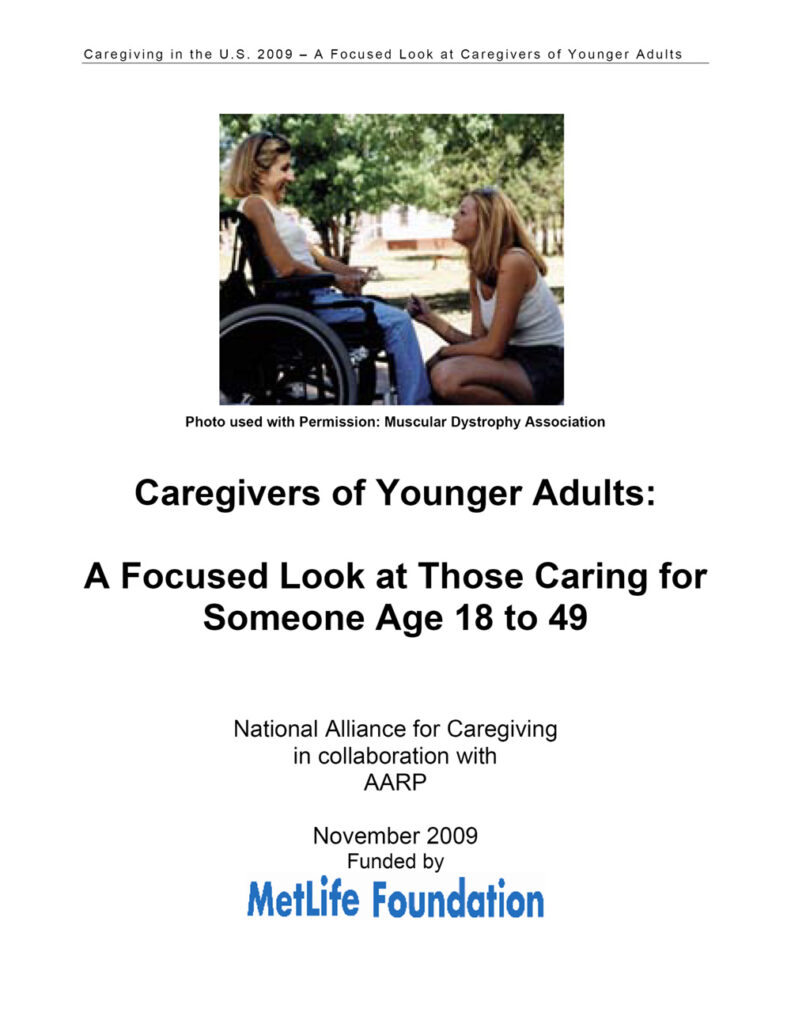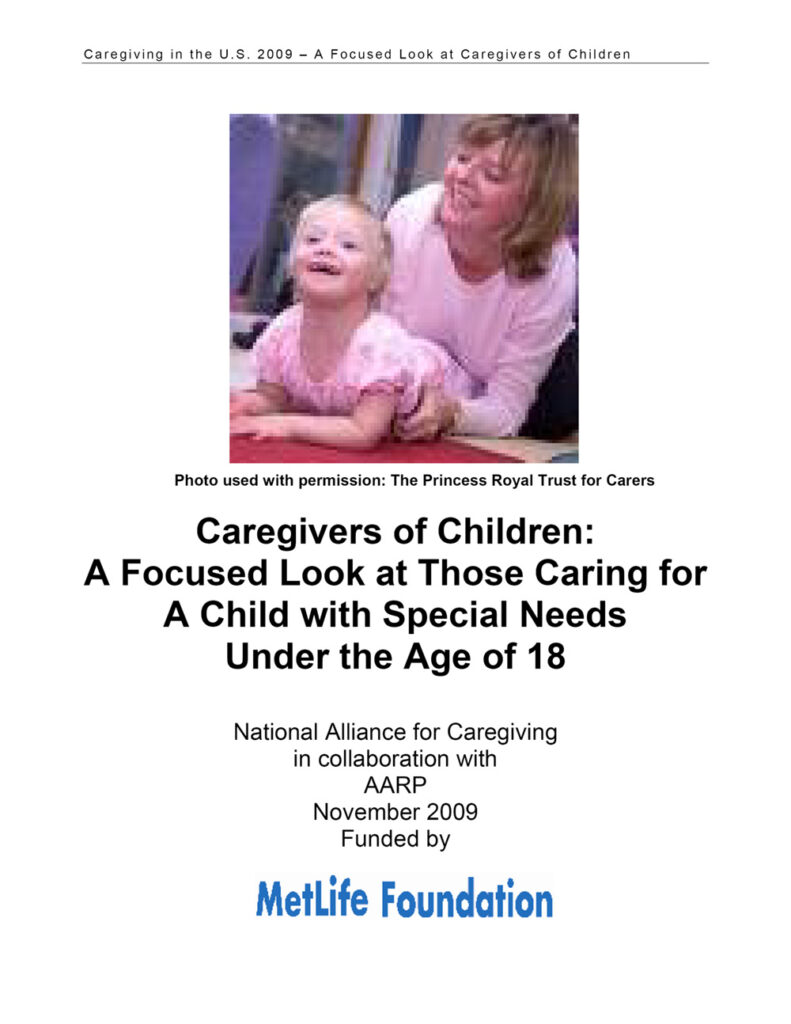Condition Specific Populations
Autoimmune (Inflammatory Bowel Disease)
NAC, in partnership with the Crohn’s & Colitis Foundation and ImproveCareNow, conducted and released a new caregiving study of individuals with inflammatory bowel disease. Inflammatory bowel disease (IBD) is an umbrella term that describes chronic inflammation of the digestive tract. Riding the Roller Coaster of Inflammatory Bowel Disease: A National Study of Caregivers of Individuals with Crohn’s Disease or Ulcerative Colitis (2019) focuses on caregiving for the more than three million Americans affected by the two most common forms of IBD.
Researchers from Crimson Research at New Mexico State University (NMSU) conducted the research with grant funding provided by the David R. Clare and Margaret C. Clare Foundation. In addition to demographic data on who is receiving care, the caring tasks provided, and the amount of time spent providing care, several key findings emerged from this report, including the high percentages of caregivers working full-time or part-time while providing care, as well as the amount of time caregivers miss from work due to caregiving responsibilities.
It was clear from the study that caregivers needed support, with the report providing insight on who provides that support and caregivers’ perception of their capacity to provide care for the condition. The report also includes policy recommendations and the next steps that can be taken to improve support for IBD caregivers and their families.
Cancer
Nearly three million Americans are currently caring for someone with cancer, and many play a key role in managing cancer, including helping their loved one adhere to treatment, make informed decisions, and even address end-of-life concerns. After dementia, cancer is the second most prevalent condition that requires the assistance of a family caregiver.
The National Alliance for Caregiving, in partnership with the National Cancer Institute and the Cancer Support Community and with data analysis from Greenwald & Associates, developed this paper to identify the challenges facing these family caregivers.
Mental Illness
As many as 8.4 million Americans are providing care to an adult with an emotional or mental health issue. As some have said, mental illness is a disease that affects the whole family. Family caregivers feel the impact of the disease as they struggle to care for their loved ones and to bridge health care systems, mental health providers, and community supports.
The National Alliance for Caregiving, in partnership with Mental Health America and the National Alliance on Mental Illness, is honored to release a new study on the obstacles and opportunities facing caregivers of adults with mental illness. The study, On Pins & Needles: Caregivers of Adults with Mental Illness, identifies startling inadequacies in the U.S. health care system in meeting the needs of families who manage moderate-to-serious mental illness.
The study provides new data on 1,601 family caregivers of persons with moderate-to-severe mental illness including people caring for a loved one affected by bipolar disorder, schizophrenia, major depression or another mental illness. Findings include gaps in existing coverage and potential solutions. The report also includes public policy recommendations. The study was made possible through generous sponsorship from Allergan, Eli Lilly, Novartis, and Janssen Scientific Affairs, LLC.
Rare Disease
The National Alliance for Caregiving, in partnership with Global Genes, is proud to present Rare Disease Caregiving in America (February 2018), a national study of 1,406 unpaid caregivers ages 18 and over living in the United States who provide care to a child or adult with a rare disease or condition. The National Institutes of Health estimates that there are approximately 7,000 rare diseases. In this study, over 400 unique rare diseases and conditions were captured, with the most commonly mentioned rare conditions as follows: Cystic Fibrosis (9%), Pulmonary arterial hypertension (4%), Atypical hemolytic uremic syndrome (2%), Ehlers-Donlos syndromes (2%), Fabry disease (2%), Congenital central hypoventilation syndrome (2%), and PANDAS (2%).
An independent Advisory Committee of national caregiving experts, clinicians, and patient/caregiving advocates reviewed the survey questionnaire, initial report findings, and final report before its release. Researchers at Greenwald & Associates administered the survey and conducted the data analysis.
The research made possible through funding from the following organizations: The Allergan Foundation, Alexion Pharmaceuticals, Inc., Amgen, Amicus Therapeutics, Biogen, the Family Support Research and Training Center (FSRTC) at the University of Illinois-Chicago, Mallinckrodt Pharmaceuticals, Retrophin, Shire, Ultragenyx Pharmaceutical, Inc., and Vertex Pharmaceuticals.
Contact / Subscribe to Newsletter
